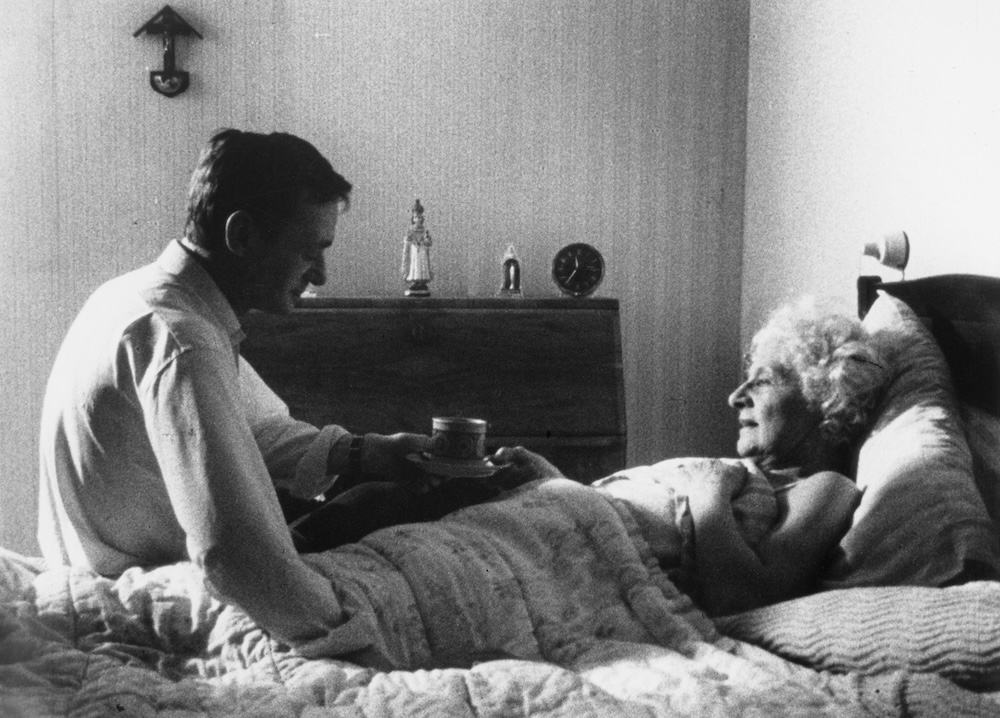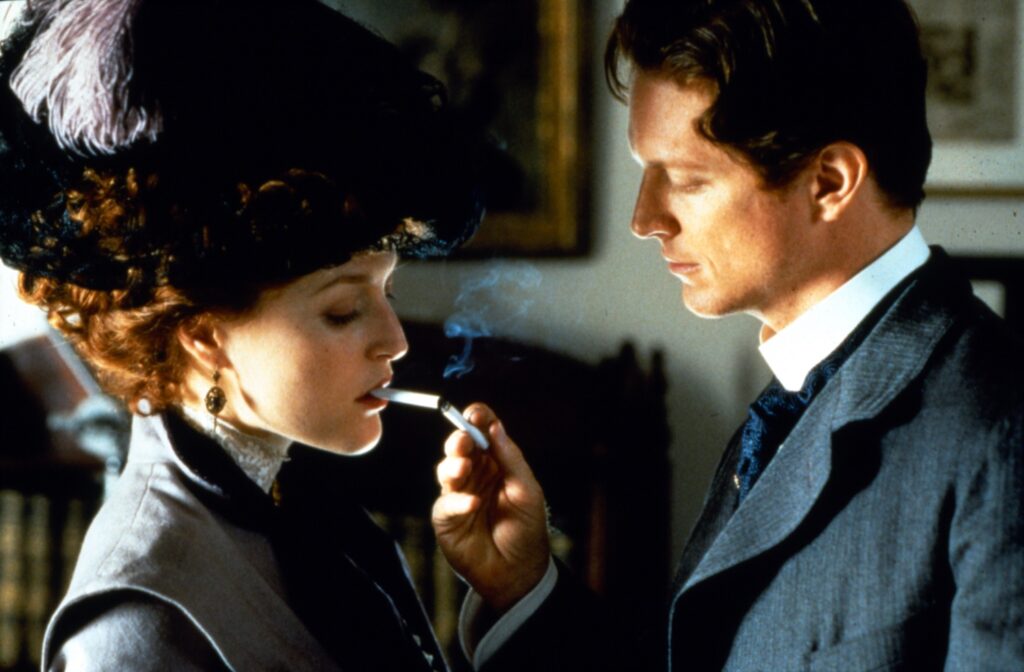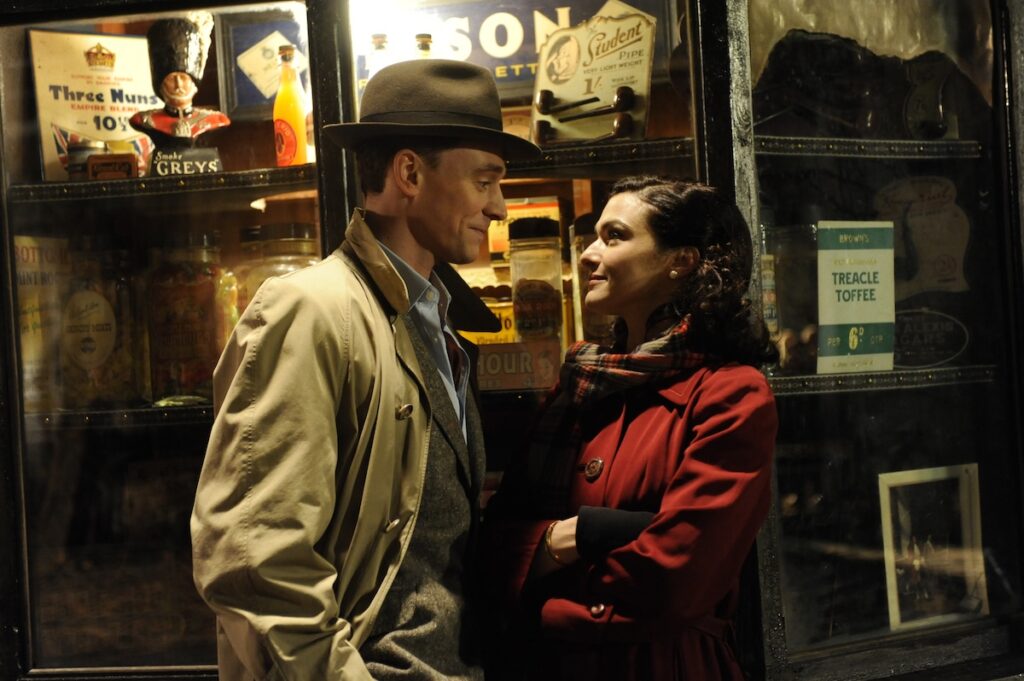Terence Davies: Ahead of the BFI’s major celebration, a curator’s pick of 5 films from a singular queer voice in independent film
“Watching a Terence Davies film is to step into a world shaped by memory and emotion,” writes BFI chief executive and Terence Davies season curator Ben Roberts for Attitude
By Ben Roberts

The films of Terence Davies have always felt like a miracle to me. I was 17 when I first discovered him on a BBC film programme and back then, my idea of cinema was big budget Hollywood escapism. But Davies was doing something completely different and what struck me in the segment on his film, The Long Day Closes (1992), was how personal it all felt. He wasn’t just making films but mining his memories and turning them into something that felt like they belonged to me too. The look and feel of his films were unlike anything I’d experienced before and while I hadn’t yet fully acknowledged my own gay self, there was something in the film’s protagonist Bud, and in Davies himself, that felt secretly, unmistakably familiar.
Watching a Terence Davies film is to step into a world shaped by memory and emotion, where personal stories echo universal truths about desire, faith and mortality. Yet beneath these themes there is always warmth, affection and the music and cinema that he loved. Whether reflecting on his own background or reimagining the lives and words of great writers and poets, Davies’ films have a power that masterfully blend sound and silence, creating beautifully layered moments that linger in the mind and evoke strong emotions. To mark what would have been his 80th birthday we are honouring Davies with a complete retrospective of his work at BFI Southbank, London, alongside a free exhibition of his personal archives curated by Edge Hill University, the UK-wide re-release of his seminal drama The House of Mirth (2000), and a streaming collection on BFI Player. For me, this is more than just a tribute to a great filmmaker. It’s a celebration of a quietly radical artist who poured his soul into cinema. Here are five of my personal highlights from the programme.

The Terence Davies Trilogy – Children (1975), Madonna and Child (1980) and Death and Transfiguration (1983)
This trilogy of shorts marked the start of Davies’ journey toward becoming one of British cinema’s most distinctive voices. Children was born while he studied at Coventry Drama School, Madonna and Child would be his NFTS graduation project, and Death and Transfiguration was made with the support of the BFI. Together they follow the life of Robert Tucker, a character shaped by Davies’ own experiences. The trilogy remains his most open exploration of gay desire and shame, a topic that would fade from his work until Benediction (2021) though it’s striking how many hallmarks of his later films are already present, from fractured timelines and the burden of memory to his masterful use of silence.

The Long Day Closes (1992)
The Long Day Closes carries the deep autobiographical weight of Davies’ childhood in post-war Liverpool. Interwoven with songs, radio shows and the films that shaped his inner world, this tapestry of memories is a personal meditation on the ache of queer discovery. It follows a sensitive boy named Bud in a 1950s working-class Catholic community where conformity smothers expression. A rare and delicate coming-of-age story, Bud’s escape into fantasy, not least via the soft glow of cinema, will be familiar to viewers who have known what it is to feel like an outsider in their own life. The Long Day Closes is a revelation and a gift of representation for the quiet boys with too many feelings and nowhere to place them except into imagination.

The House of Mirth (2000)
A highlight of our celebration is the UK-wide theatrical re-release of The House of Mirth, newly remastered by the BFI and also released on BFI Blu-ray. Gillian Anderson is a revelation as Lily Bart, a woman trying to navigate New York society only to come undone when her refusal to play by the rules begets a devastating fall from grace. While Lily suffers from her radical choices rather than for who she loves, her story will resonate with many queer viewers. The film is thick with Davies’ signature restraint and deftly unpicks its themes of repression and longing, two subjects he was often drawn to as a gay filmmaker. It is one of the most powerful British dramas of its era and proved him a master of both period filmmaking and literary adaptation.

The Deep Blue Sea (2011)
The Deep Blue Sea, Davies’ dreamy take on Terence Rattigan’s play delivers a gut punch of raw emotion. Rachel Weisz is unforgettable as Hester, a woman who risks both her reputation and sanity in the pursuit of love and happiness in post-war Britain. Hester’s isolation and defiance of societal expectations echo a familiar truth of living at odds with the world at large, so its no surprise that like The House of Mirth the film has resonated with queer viewers. Heavy with yearning and with fleeting moments of connection, The Deep Blue Sea also feels profoundly queer in sensibility if not representation. Davies kept fans waiting more than a decade for this return to his rich palette and mournful camera movements, and the film never disappoints.
Benediction (2021)
Towards the end of Davies’ life I was privileged to have formed a friendship with my filmmaking hero. Around the time of the centenary of WW1, I mentioned how I’d love to see him tackle the story of war poets Siegried Sassoon and Wilfred Owen. From the beauty of the language to the melancholy of their story, it felt like a perfect fit. What I did not confess is that I longed to see him make a film that dealt head on with gay love and sex. Aside from his early shorts, and despite his efforts to get overtly queer stories off the ground, this felt like a missing piece in his filmography. And so Benediction, which would tragically be his last film, is a fitting final act. A lyrical portrait of Sassoon, it turns away from the battlefield to focus on the emotional wreckage left in its wake. An interrogation of desire, shame and the cost of survival, it is classic Terence Davies and in its own, devastating way is the gay love story that he’d always deserved to tell.
Love. Sex. Religion. Death. The Complete Films of Terence Davies is at BFI Southbank, London, from 20 October – 30 November and on BFI Player now. The House of Mirth is in cinemas UK-wide from 24 October and on BFI Blu-ray from 24 November.
